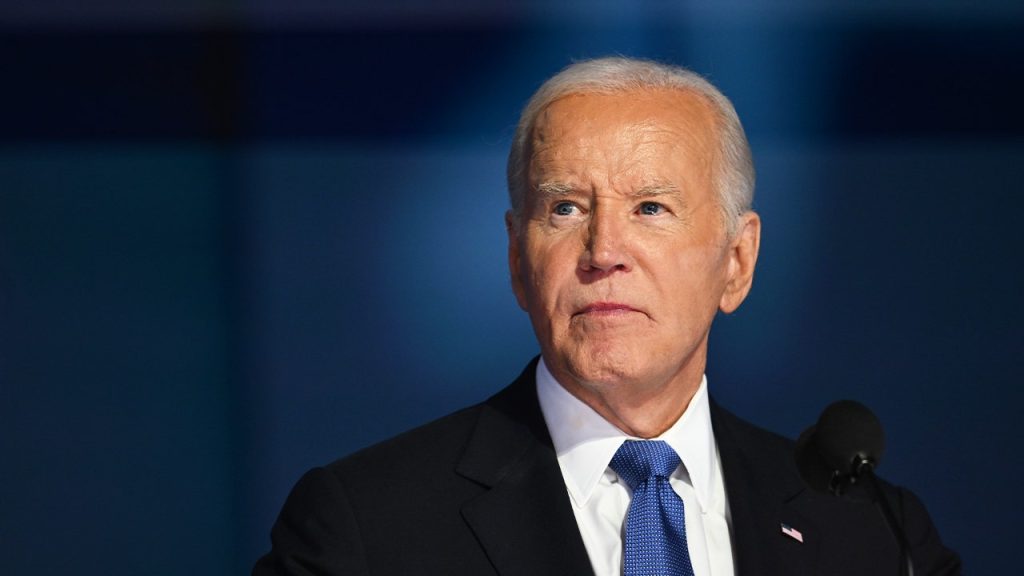President Biden has significantly raised the bar for the United States’ emissions reduction targets, aiming for a 61-66% decrease from 2005 levels by 2035. This ambitious goal, formally submitted to the United Nations as part of the Nationally Determined Contribution (NDC) under the Paris Climate Agreement, builds upon Biden’s previous target of a 50-52% reduction by 2030. This commitment underscores the Biden administration’s dedication to combating climate change and leading the global effort towards a sustainable future. However, the future of this commitment, and indeed the US’s participation in the Paris Agreement itself, hangs precariously due to the looming possibility of a second Trump presidency and his stated intention to withdraw from the accord.
The Paris Agreement, a landmark international treaty adopted in 2015, commits nearly 195 nations to collaborate on mitigating climate change. It operates on a five-year cycle where each participating country submits its NDC, outlining its planned contributions to global emissions reduction. The US, after initially joining the agreement under President Obama, withdrew during the Trump administration in 2020, only to rejoin under President Biden. This back-and-forth participation reflects the deep political divisions within the US regarding climate change policy. Biden’s updated NDC demonstrates a renewed commitment to the agreement and a more aggressive approach to emissions reduction. However, President-elect Trump’s stated intention to withdraw again casts a long shadow over these efforts and introduces significant uncertainty about the future trajectory of US climate policy.
Trump’s potential second withdrawal from the Paris Agreement poses a significant threat to the longevity of Biden’s climate goals. During his campaign, Trump expressed his support for withdrawing from the treaty upon assuming office, potentially negating the progress made under the Biden administration. This creates a precarious situation where US climate policy could be subject to drastic shifts depending on the political party in power, hindering long-term planning and investment in clean energy technologies. The possibility of a US withdrawal also weakens the global effort to combat climate change, as the US is a major emitter of greenhouse gases and a key player in international climate negotiations.
The process of a potential second withdrawal under Trump could differ significantly from the first. The previous withdrawal involved a lengthy process dictated by the terms of the agreement. This time, however, Trump could potentially expedite the process, creating a more rapid exit. Furthermore, he has the option to submit the treaty to the Senate for advice and consent, requiring a two-thirds majority for the US to rejoin. This strategy could pose a substantial hurdle for future administrations seeking to re-enter the agreement, solidifying a long-term detachment from global climate efforts.
The contrasting approaches of the Biden and Trump administrations highlight the deep political divide on climate change within the US. Biden’s ambitious emissions reduction targets reflect a commitment to addressing the climate crisis through international cooperation and investment in green technologies. Conversely, Trump’s stated intention to withdraw from the Paris Agreement signals a prioritization of other policy areas, potentially at the expense of climate action. This divergence in priorities creates a volatile policy landscape, making it challenging for businesses, investors, and researchers to plan for a sustainable future.
The uncertainty surrounding US climate policy under a potential second Trump administration underscores the importance of domestic action and the need for climate solutions that transcend partisan politics. While international agreements like the Paris Agreement are crucial for global cooperation, their effectiveness is undermined when major players like the US vacillate in their commitment. Therefore, fostering bipartisan support for climate action and developing policies that are resilient to changes in presidential administrations is essential for ensuring long-term progress towards a sustainable future. This could involve focusing on market-based solutions, technological innovation, and adaptation strategies that appeal to a broader political spectrum. Ultimately, the success of US climate efforts will depend on building a consensus that transcends partisan divides and prioritizes the long-term health of the planet.

